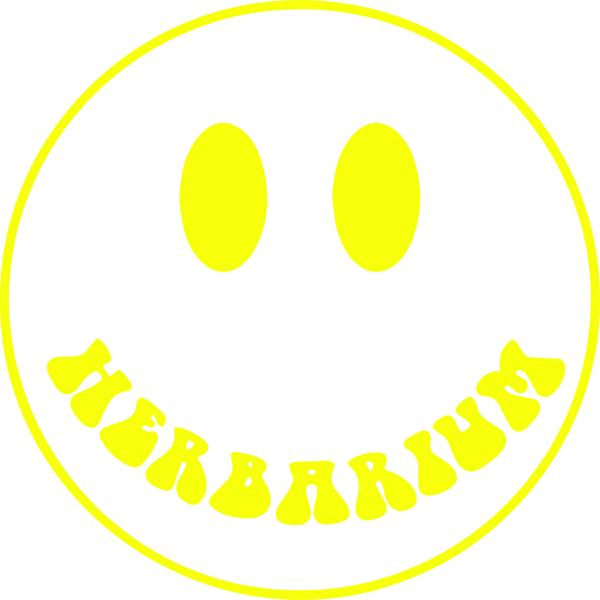In the heart of Queens, in the thriving neighborhood of Ridgewood, lies a new chapter in New York’s cannabis story. With the passage of the Marihuana Regulation & Taxation Act (MRTA) in March 2021, the state ushered in legalized adult-use cannabis for the first time. NORML
Now, institutions like Herbarium Queens are not merely retail destinations—they’re part of a broader cultural, economic and social transformation taking root across New York State.
In this blog post, we’ll explore:
-
A concise history of cannabis legalization in New York 📜
-
Key provisions of the MRTA and regulatory framework 🔍
-
What legalization means specifically for Queens and Ridgewood 🏙
-
How Herbarium Queens is positioning itself in this evolving landscape 🌿
-
What’s next for consumers, communities and culture in the Empire State 🚀
A Short History of Cannabis Legislation in New York
Early prohibition and decriminalization
Cannabis prohibition in New York began nearly a century ago: by 1927 the state had moved to fully restrict cannabis, removing medical exemptions.
In more recent decades, reform gained ground. In 2019, New York decriminalized small amounts of cannabis—taking a step toward reform, though not full legalization.
The landmark MRTA of 2021
On March 31, 2021, Governor Andrew Cuomo signed the Marihuana Regulation & Taxation Act (MRTA) into law, making adult-use cannabis legal for New Yorkers 21 years of age and older. NORML
Key features of the law include:
-
Adult use allowed for those 21+
-
Possession limits: up to 3 ounces of cannabis flower in public, and up to 24 grams of concentrate.
-
Automatic expungement of many prior cannabis convictions.
-
Creation of the Office of Cannabis Management (OCM) and the Cannabis Control Board to regulate adult-use, medical and hemp markets.
-
A social equity framework: the law explicitly aims to undo the harm of past prohibition, particularly for communities disproportionately impacted.
Transition to regulated retail
It’s important to note: legalization for adult use didn’t immediately translate into full-blown retail access. While the law passed in 2021, the regulatory system, licensing, testing standards and retail rollout took time. Albany Law School
What Legalization Means for Queens & Ridgewood
A neighborhood context: Ridgewood, Queens
Ridgewood is a dynamic, diverse neighborhood in Queens with rich cultural heritage and community roots. As a neighborhood blending long-standing New York families, immigrant communities, creatives, and emerging commerce, it reflects the kind of urban setting where the legalized cannabis industry can intersect with local identity, opportunity and consumer demand.
Shifting culture and commerce in Queens
-
With adult-use legal, the landscape of cannabis in Queens is shifting: from hidden or underground channels toward regulated, licensed commerce.
-
The social equity provisions of the MRTA mean that communities like Queens—often over-policed under prohibition—have a stake in the new industry.
-
Retail dispensaries (once unavailable for adult use) open up new commercial enablers: jobs, local licensing, consumer choice and community engagement.
Why Herbarium Queens matters
The establishment of Herbarium Queens in Ridgewood is a concrete manifestation of this shift. It represents:
-
A local retail node in the broader state system of licensed cannabis.
-
A taking of advantage of the neighborhood’s foot traffic, mixed-use zoning, accessibility, and consumer interest.
-
An opportunity for local residents to participate as consumers, employees, patrons—and perhaps even as entrepreneurs or licensees tied to the social equity mission of the MRTA.
Herbarium Queens: Building for the New Era
The brand vision
While each dispensary has its unique character, Herbarium Queens aligns with key themes of the legalized market: education, community, premium experience, and accessibility. A modern retail environment, coupled with knowledgeable staff (“budtenders”), product selection across flower, concentrates, edibles, etc., and an emphasis on safe, regulated cannabis.
Consumer experience & community engagement
For consumers in Queens, Herbarium Queens offers:
-
A welcoming environment for both adult-use (21+) and medically certified consumers.
-
Curated product menus, transparency of sourcing and testing—important elements in the regulated market that weren’t always present in pre-legalization days.
-
Programming or outreach that connects the store to its neighborhood: possibly local events, education sessions, social equity initiatives or community partnerships.
-
Proximity: being in Ridgewood means easier access for local residents, avoiding long corridors or travel to Manhattan or outer boroughs.
Social equity and neighborhood uplift
Through the MRTA’s emphasis on equity, Herbarium Queens and similar operations have the potential to:
-
Offer employment, training and career pathways to community members who were impacted under prohibition.
-
Reinforce the concept that cannabis commerce can be a neighborhood benefit, not just a commercial extractive.
-
Serve as a hub for local culture and identity: blending Ridgewood’s neighborhood character with the evolving cannabis economy.
What’s Next: The Future Landscape in New York’s Adult-Use Market
Regulatory rollout and scaling
Although the adult-use law passed in 2021, real-world implementation is ongoing: licensing, retail openings, testing infrastructure, and regulatory enforcement. Office of Cannabis Management
Consumers and neighborhood stakeholders should keep eyes on:
-
When more retail stores will open and where (beyond the initial licenses).
-
How pricing, product variety and accessories evolve in the regulated market vs. the legacy market.
-
How municipalities and neighborhoods engage with zoning, signage, proximity to schools or other regulated zones.
Community and economic impacts
-
Job creation in Ridgewood and Queens: from retail, distribution, support services, marketing, etc.
-
Local reinvestment: the MRTA framework calls for social equity, meaning communities historically harmed by prohibition may receive priority or benefit from licensing opportunities.
-
Neighborhood identity and perception shift: as cannabis becomes part of the mainstream economy, stores like Herbarium Queens contribute to the normalization of the industry and its interface with the urban fabric.
Responsible consumption & culture
-
Consumers must stay informed: for instance, under New York law adults may possess up to 3 ounces of cannabis flower and up to 24 grams of concentrate in public.
-
Usage must comply with public-use regulations; many local restrictions still apply (e.g., areas where smoking is prohibited).
-
Product quality, testing, transparency all matter more than ever in the regulated space.
Why This Story Matters
For Ridgewood, Queens—and for New York City broadly—the legalization of adult-use cannabis is more than a business line. It’s a cultural shift that intersects with justice, community development, consumer rights and urban commerce.
By placing a modern, equitable dispensary such as Herbarium Queens in Ridgewood, we witness the intersection of:
-
Legacy + Progress: Moving from a past of over-criminalization to a future of regulated, community-oriented commerce.
-
Neighborhood + Industry: A local retail venue embedded in the neighborhood, not distant or disconnected from it.
-
Consumer Choice + Safety: Regulated products, transparency, and education are now part of the mainstream.
-
Equity + Opportunity: The MRTA framework encourages participation of impacted communities, employees, small business owners and neighborhood stakeholders.



